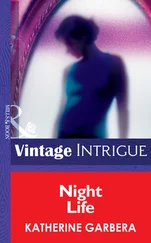“Oh, how lovely.”
“Right out there near the water.” The waitress nodded out the window at the cove.
“Beautiful spot for a wedding,” the photographer said.
The waitress went back to clip the order to the metal stand. The burly cook, in his spattered apron, reached through the small window and snapped off the sheet and read it.
“Wheat toast next up.”
A duet from Madame Butterfly was playing on the radio. What I most wanted was to sit in the kitchen and listen to it. But I knew that wasn’t going to happen.
“By the way, I’m Ann Stewart,” the photographer said. She waited a few seconds for me to offer my name, and when I didn’t, she scrunched up her face, pursed her lips, and said, “Well, ahem —anyway, me too, I’ll go see this movie soon as it comes to town. Yes, perhaps such stories set up anticipation differently in women than men. I’m probably just spouting nonsense, but anyway. Anyway, as I understand it, the story is about newlyweds madly in love, and then the wife is murdered in a hotel. Did you know it’s based on that murder in the Essex Hotel? Haligonians aren’t used to that sort of thing. Halifax is not New York. As far as murders go.”
The waitress delivered her toast and said, “Want to know something? Me and my fiancé have — how to say it? — we practiced our honeymoon night at that same hotel. That was about three months after the sadness happened. That’s how I generally refer to such things, the sadness, because if I think too detailed about them, I tend not to leave my house.”
“Do you see a lot of people coming here to photograph birds?” Ann Stewart asked.
“Mainly people set up easels and paint,” the waitress said.
“Well, nice to meet you”—she read the name tag clipped below the left shoulder of the waitress’s button-down sweater—“Sarah. Perhaps I’ll see you at the movies.”
“You just might. Me and my fiancé go to Halifax once every two months to the movies and dinner.”
“Yes,” Ann Stewart said, “and to practice your honeymoon night.”
“My fiancé says I can’t keep a secret, so for me, then, there’s no such thing as one.”
“I’ll have to think about that,” Ann Stewart said, more or less dismissing Sarah, who picked right up on it and returned to the counter.
Now addressing me, Ann Stewart said, “What do you suppose is indicated by the title Next Life ? Hmmm, I wonder. It can’t refer to some sort of afterlife, God forbid. Let’s hope not at least. That would be too sentimental, in my opinion.”
“The title is an abbreviation of Next Life Might Be Kinder, ” I said. “There’s a photographer, Robert Frank—”
“Yes, I saw his exhibit in Halifax.”
“Well, had you looked closely at his photographs—”
“I did look closely, I beg your pardon.”
“Had you looked closely, you would’ve seen that he wrote Next Life Might Be Kinder along the bottom of most of the photographs in that exhibit.”
“For someone who seems not to care about that movie, you know quite a bit. And, sir, you’ve taken a very rude tone.”
She set down some money on the table, picked up her camera, and left the café.
When Sarah delivered my bill, she smiled broadly and said, “Yeah, sure. I bet you go see that movie. It’s a movie about true love, it sounds like. You’ll go see it. All gruff on the outside, but inside, a beating heart. You can’t fool me. I’m a student of people.”
I Didn’t Leave the Apartment for Nearly a Month
FOR WEEKS AFTER Elizabeth was murdered, I felt, to put it bluntly, I had little to live for. I was all bleakness. One bath in two weeks, the next one not for another week, and so on. Hapless at feeling anything but Lizzy’s absence. I thought about suicide. I definitely considered it. I may as well admit it. I may as well say what really happened. Naturally, as soon as I could reach them after Elizabeth’s death — less than two hours, as it turned out — I spoke to her parents (Mr. Isherwood allowed me to use his private line). There were immediate gasps. After the initial shock, they said they wanted Lizzy to be buried in Wales, and I accompanied her body on a flight to London, then in a hearse to Hay-on-Wye, which Elizabeth’s father had arranged.
Elizabeth was buried in the family plot not more than half a mile from town. I noticed some grave markers as old as the fourteenth century. There were at least a hundred people in attendance; it was pouring rain and black umbrellas bloomed everywhere. Devon and Mary Church, whom I was meeting for the first time (to meet one’s wife’s parents for the first time under such circumstances is something I would not wish on the devil, as they say in Nova Scotia), were as kind to me as could possibly be imagined. A few days later, a memorial service was held in the dining room of the Swan Hotel, and many people related their memories of Elizabeth as a child — retired constable Elias Teachout himself, quite old now, told of delivering the summons, putting it in bittersweet, humorous relief — right up to when she went to Canada to attend Dalhousie. As part of her remembrance, Mary Church said, “Our love and sorrow and prayers we share with Samuel, with us here. Devon and I always knew that our Elizabeth intended to bring you back here to live.” In fact, on more than one occasion, sitting in Cyrano’s Last Night, Lizzy would say, “I’m homesick. Someday we have to go to Wales to live, okay? We’ll make ends meet somehow.” Then we’d shake hands on the deal.
After the memorial, the Churches insisted that I stay with them, in the house where Elizabeth was raised, for as long as I wished. I ended up staying for six weeks, unable to do much more than eat and sleep. During that time the Churches scarcely slept, and Lizzy’s father wept openly, her mother in the more private precincts of the house and down near the trout stream.
I was in Wales during the trial of Alfonse Padgett, a blessing considering that it had been all over the papers and on radio and television. When I returned to Halifax it was still in the papers. And one night, I heard on the radio, “… the widower Sam Lattimore has stayed on in the Essex Hotel.” I realized that in a city where violent crimes are not everyday events, a murder can linger a long time in the public consciousness. A long, long time. Personally, I was experiencing sheer stunned bewilderment, not to mention inconsolable sadness, not to mention blinding anger toward Alfonse Padgett. It all contributed to a kind of agoraphobia, and I didn’t leave the apartment for nearly a month. Mr. Isherwood kindly had food sent up from the kitchen; the hotel never billed me for it.
I’d submitted a statement for the trial, but neither the prosecution nor the defense had required me to appear as a witness. My understanding is that the case was pretty cut-and-dried. Twenty minutes after shooting Elizabeth to death, Alfonse Padgett was found in his room in the hotel. Two policemen, guns drawn, rushed through Padgett’s open door and discovered Derek Budnick beating Padgett about the back and shoulders with a nightstick. The officers hauled the bellman down to the police station, where he immediately admitted committing the crime. The investigating detectives told Padgett to write it all down, and he signed a confession. Still, a defense attorney was assigned to Padgett, and he presented an insanity defense, which, according to Derek, was practically laughed out of court. “The trial date was expedited to address the brutality of the act,” the Chronicle-Herald reported.
Derek looked in on me regularly, as did Mr. Isherwood, who slid a note under my door: “Dear Sam: We, the entire administration and staff of the Essex Hotel, are all in mourning. Please don’t worry about the rent for six months, it’s the least we can do. All heartfelt wishes to you in your time of sorrow. — Mr. Alfred Isherwood, Manager.”
Читать дальше












